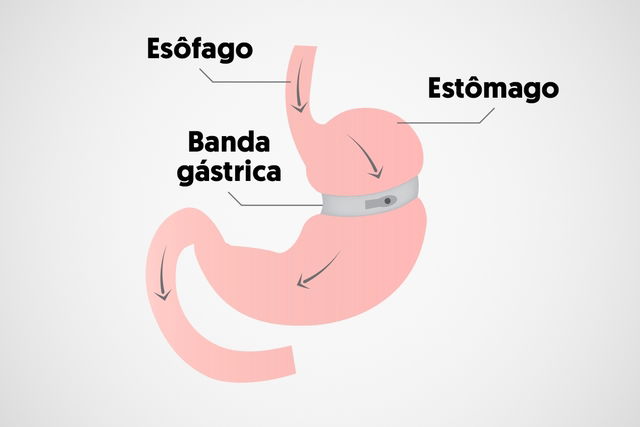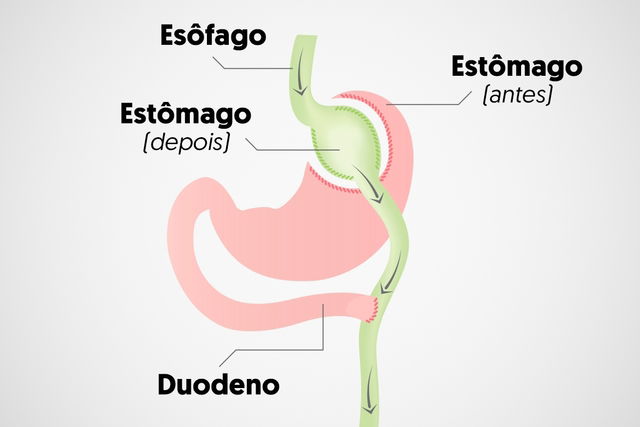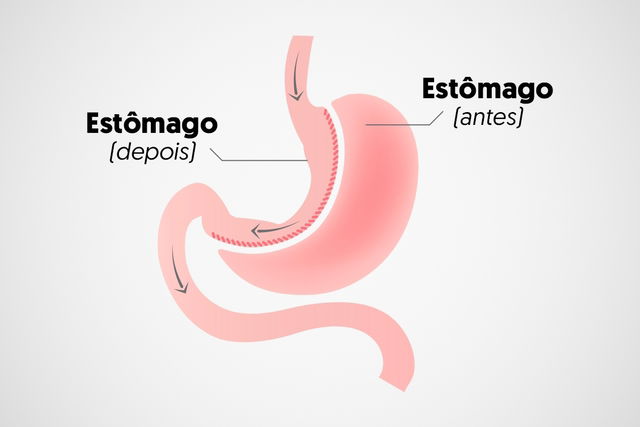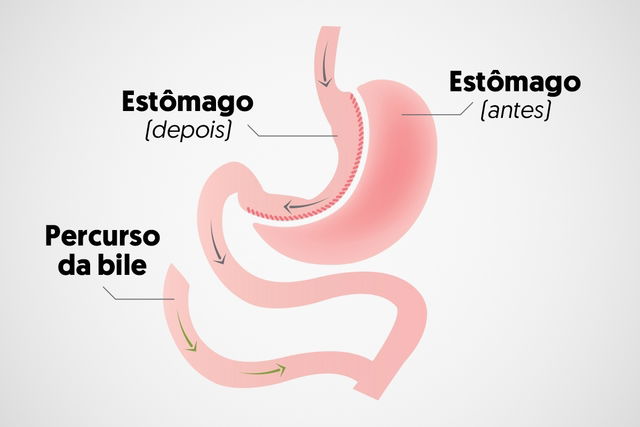Bariatric surgery is a procedure that aims to reduce the stomach's size to either reduce how much good is tolerated by the stomach or to modify the natural digestion process and significantly reduce the amount of calories absorbed. These surgeries are performed with the ultimate objective of weight loss.
Because this surgery, in most cases, is very invasive, bariatric surgery is generally only recommended as a treatment approach for patients who have tried other weight loss methods and have not achieved results. It can also be recommended when excess weight is deemed to be life threatening.
Before bariatric surgery, patients usually undergo an assessment by a multi-disciplinary tream that includes a surgeon, a nutritionist, a cardiologist and other medical specialties.

Who can undergo bariatric surgery?
Bariatric surgery is usually indicated for patients with class II obesity after months of adhering to a diet and performing regular exercise.
Surgeries that reduce the stomach are generally indicated for people between the ages of 16 and 65 in cases of:
- BMI equal to or over 40 kg/m², without weight loss even with medical and nutritional monitoring for at least 2 years
- BMI between 35 kg/m² and 40 kg/m² with other conditions, like high blood pressure, diabetes, sleep apnea and fatty liver.
At the same time, it is also bariatric surgery is not recommended for patients who have:
- Any uncontrolled mental health conditions, including drug or alcohol abuse
- A serious cardiac or pulmonary illness that is not well-managed
- Portal hypertension with esophageal varices
- Inflammatory bowel disease in the upper digestive tract
- Cushing's syndrome secondary to cancer
For this reason, a thorough assessment by several health care professionals is needed to ensure the patient is an appropriate candidate for this procedure.
Main benefits
In addition to significant weight loss, bariatric surgery can offer many health benefits in regards to the illnesses the patient may have from being obese. The following conditions typically improve and may even resolve with surgery and subsequent weight loss:
- High blood pressure
- Cardiac failure
- Respiratory failure
- Asthma
- Diabetes
- High cholesterol
This surgery is also often associated with other social and psychological benefits, with a reduced risk of depression and improved self-esteem, which can postively impact social interactions and physical mobility.
Types of bariatric surgery
The main types of bariatric surgery include:
1. LAP-band

This type of surgery is the less invasive and consists of placing a ring-like band around the stomach. This reduces the stomach's size to reduce food and calorie intake.
Normally, this type of surgery presents with less health benefits and has a reduced recovery time, although the results may be less satisfactory than other techniques.
2. Gastric bypass

A bypass is an invasive surgery in which the surgeon removes a significant part of the stomach and then connects the remaining stomach directly to the start of the intestines. This reduces the amount of space available for food and reduces the amount of calories absorbed.
This type of surgery offers great results, with up to 70% weight loss initially. However, it is associated with more risks and has a slower recovery.
3. Gastric sleeve

Opposite to the gastric bypass, this type of surgery maintains the same natural connection between the stomach and intestines. The upper part of the stomach is removed instead, making it smaller than its normal size. This helps to reduce food and calorie intake.
The gastric sleeve is associated with less risks than the gastric bypass, however it may also have less satisfactory results. It allows for an initial weight loss of up to 40%, similar to the LAP-band.
4. Biliopancreatic diversion

With this surgery, a part of the stomach and a part of the small intestine are removed. These are the main areas where nutrients are absorbed, and therefore food that is ingested is left undigested or unabsorbed, which reduces the amount of calories in a diet.
Although a significant part of the small intestine is removed, bile continues to be released into the intestines, even if food is not flowing through this part of the gut.
Possible risks
The risks of bariatric surgery as associated with the severity of the obesity-related illnesses that the patient may already have. The main complications from surgery are:
- Pulmonary embolism, which is a clot that blocks a blood vessel in the lungs, causing intense pain and shortness of breath
- Internal bleeding in surgical site
- Fistulas, which are small sacs that form around the ends of the surgical site
- Vomiting, diarrhea and stool with blood
Normally, these complications emerge while the patient is still admitted, and are quickly resolved by the medical team. Depending on the severity of symptoms, a new surgery may be needed to correct the problem.
It is also common that patients present with nutritional deficiencies after surgery, like anemia, or folic acid, calcium or B12 deficiency,
